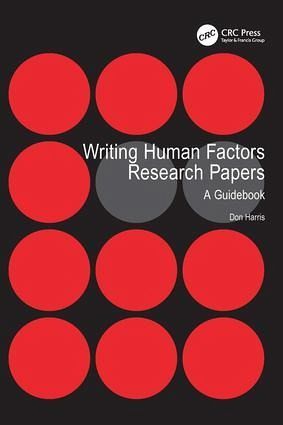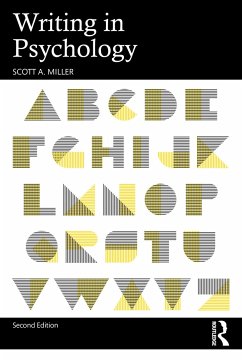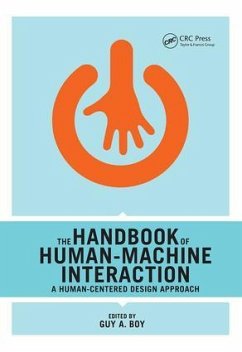
Writing Human Factors Research Papers
A Guidebook
Versandkostenfrei!
Versandfertig in 6-10 Tagen
54,99 €
inkl. MwSt.
Weitere Ausgaben:

PAYBACK Punkte
27 °P sammeln!
Writing high-quality papers suitable for publication within international scientific journals is now an essential skill for all early-career researchers; their career progression and the reputation of the department in which they work depends upon it. However, many manuscripts are rejected or sent back for major re-working not because the science they contain is in any way 'bad', but because the same problems keep occurring in the way that the material is presented. It is one thing to write a good scientific paper, however it is quite another thing to get it published. This requires some addit...
Writing high-quality papers suitable for publication within international scientific journals is now an essential skill for all early-career researchers; their career progression and the reputation of the department in which they work depends upon it. However, many manuscripts are rejected or sent back for major re-working not because the science they contain is in any way 'bad', but because the same problems keep occurring in the way that the material is presented. It is one thing to write a good scientific paper, however it is quite another thing to get it published. This requires some additional nous. In writing this book Don Harris draws upon nearly a quarter of a century of experience as an author and reviewer of research papers, and ultimately as a journal editor. By his own admission, it contains all the things he wished that his mentors had told him 25 years ago, but didn't. The material in the book is drawn from many years of finding all these things out for himself, usually by trial and error (but mostly error!). The text adopts a much lighter touch than is normally found in books of this type - after all, who really wants to read a book about writing research papers? The author describes his own unique approach to writing journal papers (which, in his own words, has proved to be extremely successful). All major points are illustrated with examples from his own, published works. The book is written in the form of a manual for constructing a journal manuscript: read a chapter, write a section. However, the material it contains goes beyond just this and also describes how to select a target journal, the manuscript submission process, what referees are looking for in a good journal paper, and how to deal with the referees' comments. Each chapter concludes with a checklist to ensure all the key elements have been addressed.














